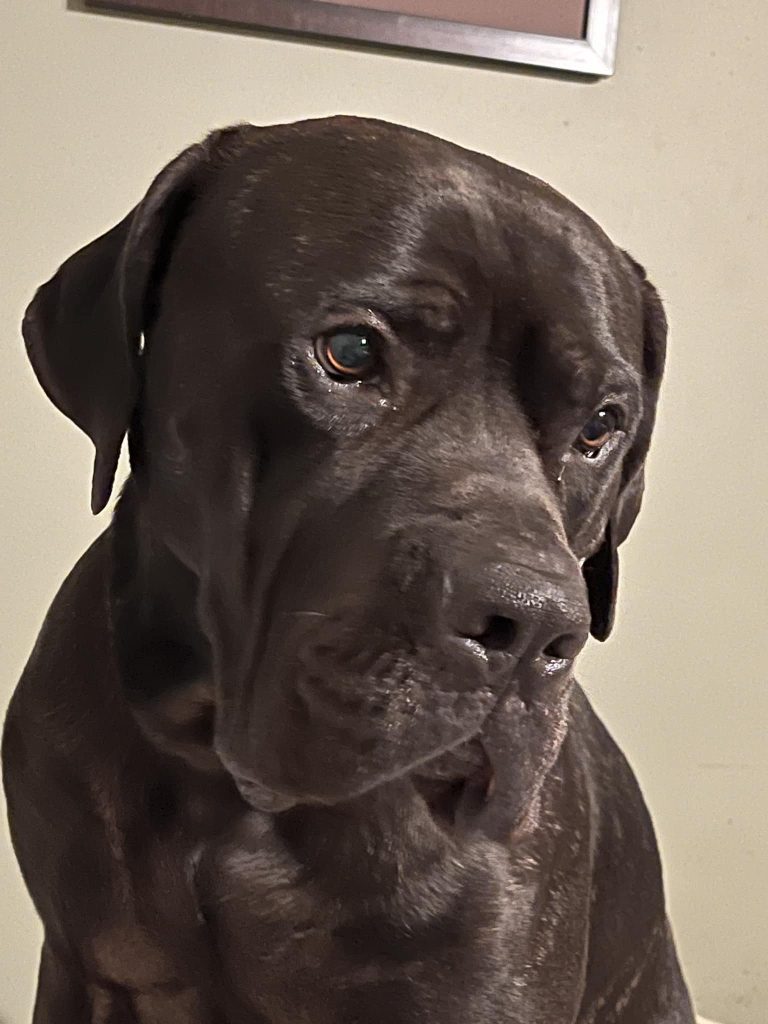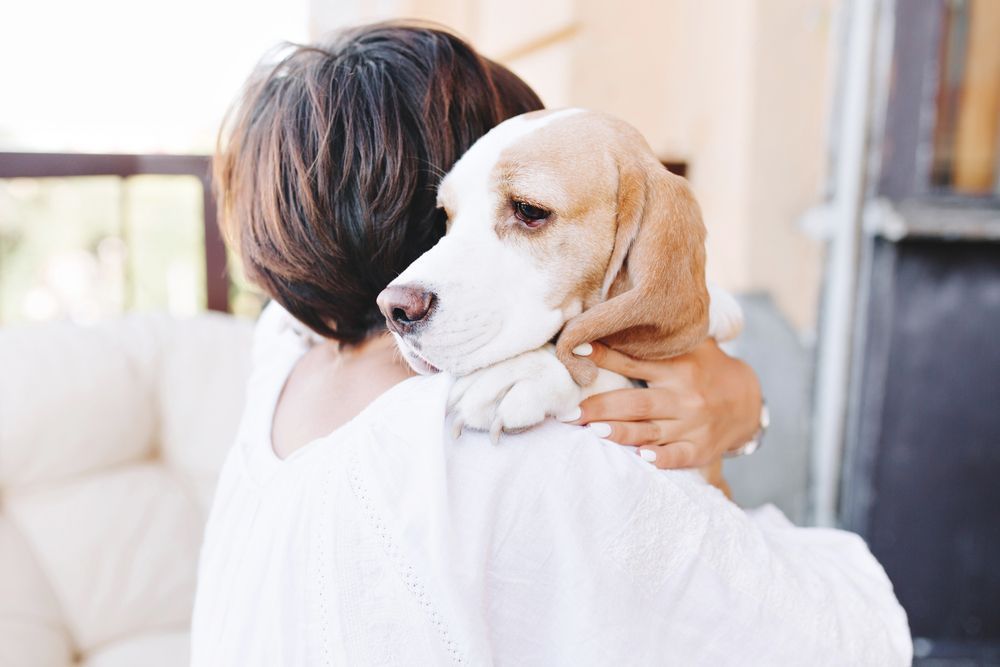I’m really sorry to hear about your dog’s passing or any situation where your dog threw up yellow liquid and died. It happened normally with cats and dogs; the dog died suddenly after vomiting.

Why did my dog throw up before dying?
There could be various reasons why a dog might vomit before passing away, ranging from medical conditions to the natural processes that occur near the end of life.
If you have concerns about your dog’s health or the circumstances surrounding their passing, it’s best to consult with a veterinarian who can provide you with professional insights based on the specific situation.
How do you treat a dog that vomits yellow bile and is not eating?
Vomiting yellow bile and a lack of appetite in dogs can be concerning symptoms, and it’s essential to consult with a veterinarian for a proper diagnosis and treatment plan. However, I can provide you with some general information about potential causes and steps you can take in the meantime:
Schedule a veterinary visit: Contact your veterinarian as soon as possible to explain the symptoms and schedule an appointment. They will be able to conduct a thorough examination, ask relevant questions, and recommend appropriate tests or treatments based on their findings.
Avoid giving food for a short period: Withholding food for 12 to 24 hours (but not water) can help calm the dog’s stomach. However, it’s important to consult with a vet before implementing this step, as some medical conditions may require different approaches.
Gradually reintroduce food: After the fasting period, you can start reintroducing food in small portions. Opt for a bland diet, such as boiled chicken and rice, or consult with your vet for specific recommendations.
Monitor water intake: Ensure that your dog has access to fresh water at all times. Dehydration can worsen symptoms, so it’s crucial to monitor water intake and contact your vet if you notice any signs of dehydration.
Follow your vet’s recommendations: Your veterinarian may prescribe medications to address the underlying cause of the vomiting and appetite loss. Follow any additional advice the vet may give you and administer any prescribed medications as directed.
What home remedy is good for dogs vomiting yellow bile?
When a dog is vomiting yellow bile and not eating, it’s important to consult with a veterinarian for proper diagnosis and treatment. Home remedies may provide temporary relief but do not address the underlying cause. However, there are a few steps you can take at home to help alleviate symptoms before seeking veterinary care:

Fasting: Withhold food for a period of 12 to 24 hours, but ensure your dog has access to fresh water at all times. This rest period can help settle their stomachs.
Gradual reintroduction of food: After the fasting period, reintroduce a bland diet with small, frequent meals. Boiled chicken and rice are commonly used in such cases. Start with small portions and observe how your dog responds. If they continue to vomit or refuse food, consult a veterinarian.
Probiotics: Probiotics can help restore the balance of beneficial gut bacteria and aid in digestion. You can consider giving your dog a canine-specific probiotic supplement, but it’s best to consult with your vet to determine the appropriate product and dosage.
Ginger: Ginger has anti-nausea properties and can be given to dogs in small amounts. You can try giving your dog a small piece of fresh ginger or a ginger supplement. However, consult with your veterinarian first to ensure it’s safe for your dog and to determine the appropriate dosage.
Why did my dog throw up a small amount of yellow liquid?
Vomiting yellow liquid, often referred to as bile, can occur in dogs for some other reasons. Here are a few possible explanations:
Empty stomach: Dogs that haven’t eaten for a while or have an empty stomach may vomit bile. When the stomach is empty, bile, which aids in digestion, can accumulate and irritate the stomach lining, leading to vomiting.
Regurgitation: Sometimes, what appears to be vomiting is actually regurgitation. Regurgitation is the passive expulsion of undigested food or liquid from the oesophagus or stomach without the forceful abdominal contractions associated with vomiting. If your dog regurgitates a small amount of yellow liquid, it could indicate a problem with the oesophagus or an issue with the sphincter that separates the oesophagus and stomach.
Gastrointestinal issues: Gastrointestinal problems such as gastritis (inflammation of the stomach), gastroenteritis (inflammation of the stomach and intestines), or other digestive disorders can cause vomiting, including the expulsion of bile.
Dietary changes or issues: Abrupt changes in diet, dietary indiscretions (such as eating something inappropriate or spoiled food), or food intolerances can upset a dog’s stomach and lead to vomiting, sometimes accompanied by the expulsion of bile.
Other underlying conditions: There are various other health issues that can cause vomiting in dogs, including infections, pancreatitis, liver or kidney disease, gastrointestinal blockages, or systemic illnesses. It’s crucial to speak with a veterinarian for a proper diagnosis if the vomiting persists, gets worse, or is associated with other alarming symptoms.
Why is my dog throwing up brown material at night?
If your dog is throwing up brown material at night, it could indicate a few different possibilities. However, without further information or a veterinary examination, it’s difficult to determine the exact cause. Here are a few potential reasons for a dog vomiting brown material:
Digested blood: If the vomit appears brown and has a coffee ground-like appearance, it could be an indication of digested blood. This could be caused by bleeding in the stomach or upper gastrointestinal tract. It’s important to consult with a veterinarian to determine the underlying cause and appropriate treatment.
Bile mixed with food: Bile, a digestive fluid produced by the liver, can appear brown when mixed with partially digested food. If your dog’s stomach is empty and bile refluxes into the stomach, it can lead to vomiting of this brown liquid.
Ingestion of foreign objects or toxins: Dogs are known to ingest objects or substances that are not meant to be consumed. If your dog has ingested something indigestible or toxic, it could cause vomiting, and the vomit may be brown. This can be a serious situation that requires immediate veterinary attention.
Given the potential seriousness of the situation and the range of possible causes, it is important to have your dog evaluated by a veterinarian. They will be able to perform a thorough examination, ask relevant questions about your dog’s medical history and diet, and potentially recommend diagnostic tests to identify the underlying cause.
Based on the diagnosis, appropriate treatment can be provided to address the issue and alleviate your dog’s symptoms.
Why does a dog vomit blood before death?
If your dog vomited blood before passing away, it could indicate a serious medical condition or internal bleeding. While I understand this may be a distressing situation, it is important to remember that I am an AI language model and not a veterinarian, and I cannot provide a definitive diagnosis.
There are various potential causes for a dog vomiting blood, including gastrointestinal bleeding, stomach ulcers, ingestion of toxic substances, bleeding disorders, trauma, or certain diseases. These conditions may require immediate veterinary attention.

If you haven’t already done so, it is advisable to reach out to a veterinarian who can provide professional guidance and support. They can review your dog’s medical history, perform a physical examination, and potentially recommend additional tests to determine the underlying cause.
Losing a pet can be emotionally challenging, and it may be helpful to seek support from friends, family, or a grief counsellor during this difficult time.
Why did the dog vomit green and die?
The situation you described, where your dog vomited green and subsequently passed away, sounds distressing.
Vomiting green material could also indicate the presence of bile, which is a digestive fluid produced by the liver. Bile can sometimes have a greenish color, and its presence in vomit can suggest various underlying issues. However, without more information about your dog’s medical history and symptoms, it is difficult to determine the exact cause.
There are multiple possible causes for a dog vomiting green and subsequently passing away, including gastrointestinal issues, toxicity, pancreatitis, organ failure, or other serious medical conditions. It’s important to reach out to a veterinarian who can provide professional insights and help you understand what might have happened to your dog.
We think that you have visited our page and gained helpful knowledge about why my dog is vomiting yellow. If you have any questions, contact us without any hesitation, and we will help as soon as possible.
Read more about Cute Fawn Dog!



